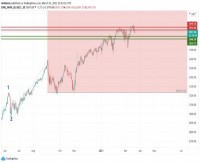|
Ins and Outs of Managed Accounts Investors became more interested in separately managed accounts after last year’s asset freeze by many hedge funds and the Bernard Madoff scandal. Managed accounts are rare in certain hedge fund sectors and require a large minimum investment. But futures commission merchants have been offering them for many years, for minimums that in general are much smaller. Hedge fund administrator GlobeOp brought together a number of industry people, including executives from top investment groups like Lighthouse and Lyxor, to discuss the topic. Below are highlights from this event, which took place in New York on September 17th. By investing through a separate account, the client retains ownership of the assets and sees what’s going on in the account. The manager trades in the account, typically following the strategy of a benchmark fund. A third-party administrator performs functions such as accounting and collateral management. This structure not only helps prevent fraud and misappropriation of assets, it gives the customer control over the investment program, costs and liquidity. While all that is reassuring, managed accounts have their own complications. One large set of investors, namely funds of hedge funds, are increasingly using managed accounts. This is particularly the case when it comes to investing with commodity trading advisors. Lighthouse Investment Partners’ CTA fund invests only in separate accounts, as do several other Lighthouse funds. Sean McGould, president and chief investment officer at Lighthouse, says the structure allows a better understanding of risks and more robust position-level analysis. Having your own account gives you transparency. But to benefit from the trading data, an investor needs to have ways of analyzing it and acting on the findings. It takes human and intellectual capital to make meaningful use of the transparency, said Mr. McGould. One issue that has been raised about separate accounts, namely tracking errors between an account and the benchmark fund, did not arise in his experience. In other words, the accounts did successfully replicate the desired strategies. Lighthouse currently has 80 accounts with managers in various strategies—the number is expected to grow to 100 by 2010. For individual investors, there is a danger is that the manager may not be able to reproduce the benchmark fund’s performance because an account has too little money. Gary Goldstein from the prime brokerage division of Newedge suggests that a group of investors can share an account if each investor’s assets are not enough for a separate account. Secret Sauce John Brunjes, partner at law firm Bracewell & Guiliani – as in Rudy Guiliani, the former NYC mayor, who did not attend the event – says the challenges for the manager include lower fees, the effort to ensure trades are in line with the guidelines and the risk of disclosing the “secret sauce” by allowing the customer to see the trading in the account. For the client, there are set-up and administrative costs and the regulatory reporting required because the investor directly owns the securities in the account. Another challenge is to make sure the account is treated fairly compared to the funds, but Mr. Brunjes noted that there may be differences in performance because the same securities were purchased at different times and prices. Nathanaël Benzaken, a managing director at Lyxor Asset Management, which oversees a big managed account platform, says managed account providers are not all equal and investors need to do due diligence on the platform before doing due diligence on the hedge fund. A big benefit to investing via a separate account: you can use the transparency to optimize entry and exit into markets. An investor might want to liquidate the assets even if the manager is holding them in the benchmark fund or, conversely, may decide to hold the assets even if the fund is being liquidated, Mr. Benzaken pointed out. Of course, there is a cost to each of these courses of action, but an investor could be better off by bearing that cost. Being in a managed account – rather than commingled pool – permits such choices. Administrators can help investors make sense of the data accessible in a an account. Vernon Barback, president of GlobeOp, said a fund administrator can track every trade and generate an independent risk report. Some administrators can use the information to provide scenario analysis, showing what will happen to the account under certain market conditions. But the best practices with respect to managed accounts, including daily trade position and cash reconciliations, require a very deep level of service from an administrator, he said. Given the additional work involved in managing separate accounts, managers have mixed feelings. Martin Kalish, chief operating officer of Waterstone Capital Management, a convertible bond hedge fund manager, says a managed account is not for every manager or investor. The manager and investor need to negotiate to make sure that it works for both parties. One sensitive question: how long will the investor stay with it? There are costs to setting up a system to run accounts and if the customer is going to close the account when there is a loss, it’s not worth the effort. The manager needs to decide if it fits the business model and whether the client can deal with the information in the account, Mr. Kalish said. “We don’t want to spend our time answering questions all the time about what we’re doing.” Despite the challenges, there are indications that separate accounts are popular. Some 50% of Newedge prime brokerage’s revenues come from managed accounts, said Mr. Goldstein. For a look at another managed account platform, see Insider Talk on MF Global. |
|
This article was published in Opalesque Futures Intelligence.
|





 RSS
RSS









